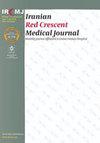改进自然灾害中的糖尿病自助服务:定性参数和建议
IF 0.2
4区 医学
引用次数: 0
摘要
背景:自然灾害发生时,糖尿病患者会比健康人面临更多的身心挑战。因此,创新的计划和政策对于为患者提供如何更好地控制病情的持续教育至关重要。研究目的:本研究旨在确定自然灾害对糖尿病患者的影响:本研究旨在确定灾害期间糖尿病患者赋权扫盲的组成部分。方法:本研究采用定性内容分析法:本研究采用传统的演绎法,对内容进行定性分析。采用有目的的抽样,通过半结构化访谈收集数据。小组由 24 名参与者组成,其中包括伊朗本土的内分泌科医生、护士、急救医疗中心管理人员以及医学图书馆和信息领域的专家。这些参与者都有在自然灾害等危急情况下参与救援工作的直接经验。对访谈进行了记录并转录成书面形式。在 MaxQDA 软件的帮助下,采用主题分析法进行数据分析。结果:通过内容分析,确定了 10 个主要类别、61 个子类别和 5 个主题,包括灾害风险感知素养、用药素养、复原力素养、营养素养和自助素养。结论研究结果为决策者在灾害情况下编写专门针对糖尿病患者的有针对性的健康素养教育材料提供了参考。糖尿病患者,尤其是居住在灾害易发地区的糖尿病患者,应掌握应急和灾害政策知识,以提高他们的健康素养。他们应积极控制自己的病情,同时了解决策者的指导方针。本文章由计算机程序翻译,如有差异,请以英文原文为准。
Improving Diabetes Self-Help in Natural Disasters: Qualitative Parameters and Recommendations
Background: When natural disasters occur, people with diabetes face more physical and mental challenges than healthy individuals. Therefore, innovative programs and policies are crucial for providing ongoing education to patients on how to better manage their condition. Objectives: The present study aimed to identify the components of empowerment literacy for diabetic patients during disasters. Methods: The present research employed a qualitative content analysis approach using a conventional deductive method. Purposive sampling was conducted, and data were collected through semi-structured interviews. The panel consisted of 24 participants, including native Iranian endocrinologists, nurses, emergency medical center managers, and experts in the field of medical librarianship and information. These participants had direct experience in relief efforts during critical situations such as natural disasters. The interviews were recorded and transcribed into written format. Data analysis was performed using thematic analysis with the assistance of MaxQDA software. Results: The content analysis resulted in identification of 10 main categories, 61 sub-categories, and five themes, including Disaster risk perception literacy, Medication literacy, Resilience literacy, Nutrition literacy, and Self-help literacy. Conclusion: The obtained findings have informed the creation of targeted health literacy education materials for policymakers in disaster scenarios specifically designed for individuals with diabetes. Diabetic individuals, particularly those residing in disaster-prone areas, should possess knowledge of emergency and disaster policies to enhance their health literacy. They should actively manage their condition while keeping abreast of policymakers' guidelines.
求助全文
通过发布文献求助,成功后即可免费获取论文全文。
去求助
来源期刊

Iranian Red Crescent Medical Journal
医学-医学:内科
自引率
0.00%
发文量
0
期刊介绍:
The IRANIAN RED CRESCENT MEDICAL JOURNAL is an international, English language, peer-reviewed journal dealing with general Medicine and Surgery, Disaster Medicine and Health Policy. It is an official Journal of the Iranian Hospital Dubai and is published monthly. The Iranian Red Crescent Medical Journal aims at publishing the high quality materials, both clinical and scientific, on all aspects of Medicine and Surgery
 求助内容:
求助内容: 应助结果提醒方式:
应助结果提醒方式:


